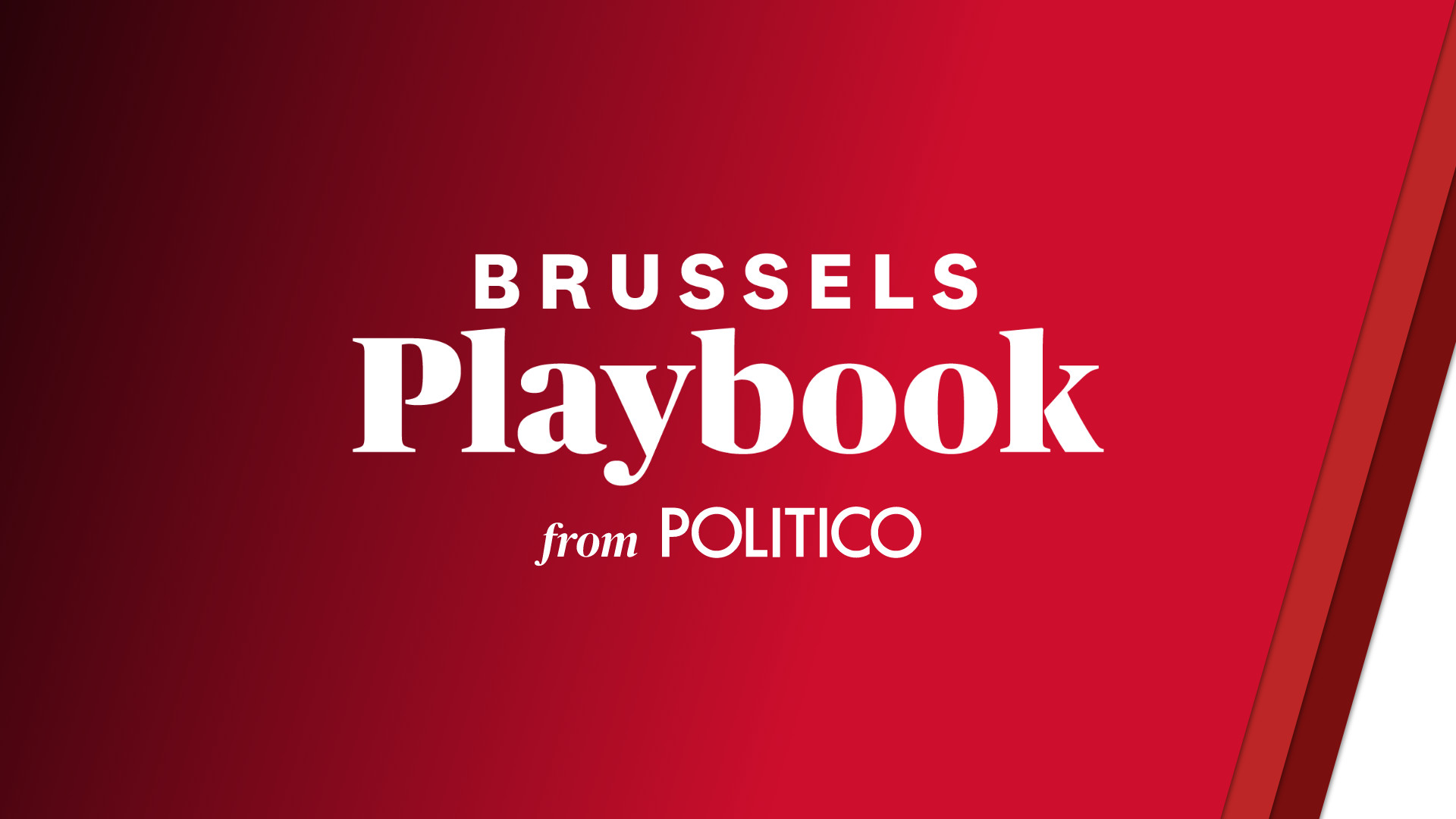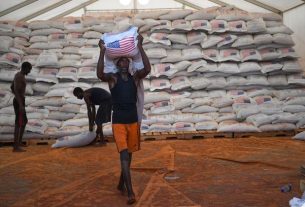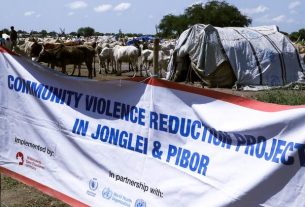Press play to listen to this article
Voiced by artificial intelligence.
By EDDY WAX
with ZOYA SHEFTALOVICH
PRESENTED BY

Send tips here | Tweet @eddywax | Listen to Playbook and view in your browser
OVER AND OUT: Today is Tuesday August 31. The Pentagon confirmed overnight that the last U.S. plane had flown out of Kabul, drawing an end to a 20-year war. Thousands of people who are desperate to leave remain stranded in Afghanistan.
Immortal image: The U.S. department of defense tweeted this image of Major General Chris Donahue boarding the final plane out of Kabul overnight, noting he was the “last American soldier to leave Afghanistan … ending the U.S. mission.”
GOOD MORNING, this is Eddy Wax writing today’s Playbook. I normally cover food and farming for POLITICO, but today I’ve hung up my wellies to bring you what you need to know outside the high-octane world of agriculture.
POST-AFGHANISTAN ERA BEGINS
EU INTERIOR MINISTERS MEET: EU justice and home affairs ministers are holding an extraordinary meeting starting at lunchtime today to discuss the latest developments in Afghanistan. Ministers are expected to agree on a joint statement, and we might get an indication of how many Afghan refugees each EU country is willing to take in (although that’s not certain). Our migration expert colleague Jacopo Barigazzi previewed the meeting in detail here.
**A message from ETNO: What if ICT was Europe’s real (green) deal? In a joint opinion piece, GeSI’s Luis Neves and ETNO’s Alessandro Gropelli, argue that the ability of ICT to slash carbon emissions across industrial sectors might be severely understated. Read more.**
Reading between the lines: Jacopo has also seen the latest version of the expected statement for the meeting, as it was agreed by countries’ EU ambassadors on Monday. It only contains a few tweaks compared to earlier drafts (which we reported on here). For example: The language on the need for international protection for Afghans has been strengthened.
Another lost battle: The word “protection” is now used six times, twice more than in the previous draft, which is an indication of a better balance between security fears and solidarity with refugees. Yet the draft still talks about “illegal migration,” an expression used four times. Some diplomats pointed out that during the meeting, there were requests to change it into “irregular migration.” The European Commission itself stresses that due to “the association with criminality the term ‘illegal migration’ should be avoided, as most irregular migrants are not criminals.” But that now seems another lost battle.
TRIGGER WARNING: Amnesty International is urging the EU to trigger a never-before-used law designed for managing sudden influxes of migrants into the bloc. Amnesty wrote in a public letter that the Temporary Protection Directive should be triggered to facilitate the “safe and orderly arrival and protection in Europe” of Afghans at risk. The EU directive, which dates back to 2001 and is in the process of being repealed anyway, would allow the EU to instantly give protection to a specific category of refugee — in this case, Afghans — and would not require the full consent of all EU countries. (We’re looking at you, Hungary and Poland.)
Unlikely: However, apart from some socialists like the EU’s top diplomat, Josep Borrell, floating the idea last week, and some mainly left-leaning MEPs also pushing for it, there isn’t much sign it’s going to happen yet.
CRACKING THE SAFE ZONE: The U.N. Security Council has also been busy drafting political verbiage. In an overnight resolution, the Security Council called on the Taliban to honor its pledge to let Afghans leave safely, but stopped short of demanding the creation of an internationally mandated safe zone in Kabul to continue evacuations, as French President Emmanuel Macron had sought. Instead, the resolution, sponsored by France, the U.K. and U.S., calls for “all parties to allow full, safe, and unhindered access” for aid groups. Russia and China abstained in the vote. You can read the resolution in full here, and the details from Rym Momtaz here.
FRIENDLY FIRE: POLITICO’s scoop on Monday, which quoted American commanders suggesting they had wanted to close Abbey Gate at Kabul airport before last week’s terror attack but kept it open to allow Britain to continue evacuating its personnel, is making a splash in the U.K. papers this morning. The Times says the leaks are attempting to blame Britain for the deaths. Our sister newsletter, London Playbook, has put the U.S. claim to British officials, who deny it. Make sure you read this morning’s edition, out at 8 a.m. Brussels time here.
WE REAP WHAT THEY SOW: In order to hold the Taliban to their pledge to end the opium trade — and stem the tide of heroin pouring into Western countries — the West will have to work closely with an Islamist government that has an appalling human rights record, and a lot to lose politically if they deprive farmers of their livelihoods. But failing to hold the Taliban to their pledge could prompt China, Iran or Russia to step in, writes Emilio Casalicchio in a fascinating — and terrifying — must-read piece.
TRAVEL
EU KICKS AMERICA OFF TRAVEL LIST: The Council of the EU on Monday removed the United States from its approved travel list — less than three months after it was added. The move means unvaccinated travelers from the U.S. could again face restrictions on non-essential trips to the Continent. Hanne Cokelaere has the details.
No reciprocity: The EU is frustrated by the fact it got nothing in return for easing travel rules for Americans coming to Europe in June. As it happens, EU Home Affairs Commissioner Ylva Johansson is in the U.S. and the subject of cross-Atlantic travel has, of course, come up during her trip.
What gives? In a meeting with Homeland Security Secretary Alejandro Mayorkas, Johansson “emphasized that the EU position is and has been that there should be reciprocity,” an EU official told our colleague Jacopo Barigazzi. With the U.S. off the EU’s list, that now looks like a moot point. In any case, the EU travel list is non-binding and each EU member country can decide itself whether to let in American visitors.
Coming and going: The Council also moved to take Israel, Kosovo, Montenegro, Lebanon and North Macedonia off the list — and, like the U.S., the last two countries were only added in June.
**Adina Vălean, EU Commissioner for transport, will speak at POLITICO Live’s “Keep on trucking: the road to charging and refueling infrastructure”, taking place on October 14. Register today!**
POLITICO INTERVIEW — KATHARINA VON SCHNURBEIN
THE EU OFFICIAL TACKLING AN ANTI-SEMITISM EXPLOSION: Katharina von Schnurbein is preparing a new EU strategy in the never-ending battle against anti-Jewish hatred in Europe — but her job has only got harder during the pandemic. A recent study commissioned by the EU’s directorate-general for justice found that when it comes to anti-Jewish hate on Telegram, Twitter and Facebook, there was a 13-fold increase in German language posts, and a seven-fold increase in French ones during the pandemic.
Viral load: The EU’s coordinator on combating anti-Semitism is aghast at how anti-Jewish racism has mushroomed in online spaces during the pandemic. “It really exploded and I think that we saw that many of the old conspiracy myths, the old ideas, were repackaged,” she told Playbook. “How quickly this increased was really shocking.”
Real-world consequences: “Harmful content is not necessarily illegal but can still be very harmful because it can lead to radicalization,” von Schnurbein said, pointing to the 2019 attack in Halle in which an assailant killed two people. This month, 10 people in Cologne beat up a young Jewish man wearing a yarmulke in an apparent anti-Semitic assault.
Israel and Europe: There was also a giant uptick in anti-Semitism during Israel’s conflict with Hamas in Gaza in May this year. That’s unjustifiable, von Schnurbein said: “We don’t accept … in any other constellation, that a conflict elsewhere in the world can be used to justify pressure against our citizens, or even attacks and criminal acts against our citizens here.”
Fighting back: The EU will publish a “strategy on combating anti-Semitism and fostering Jewish life” in the first half of October, von Schnurbein said. The aim is to “mainstream” the fight against anti-Semitism across all relevant EU policies. In post for almost six years, von Schnurbein is part of a four-person team that’s nominally attached to DG Justice, and reports directly to Margaritis Schinas, the European commissioner for promoting our European way of life.
Countries need to step up: The strategy will include an “important push” for countries to transpose and apply EU legislation that criminalizes hate speech. All EU countries agreed to have national strategies on fighting anti-Semitism in 2018, but only three have so far adopted one.
Building awareness: The strategy will also include a pillar focusing on educating the general public about the Holocaust and Jews in general. “We know that awareness about Jewish life is very low,” said the German official, who is not Jewish herself. Knowledge about the Holocaust in Europe is declining, von Schnurbein said, and there are fewer and fewer survivors still alive. A Eurobarometer survey in 2019 found 68 percent of Europeans are “not informed” about Jewish history, customs and practices.
Synagogue museums: When so many parts of Europe are devoid of Jewish life, the lack of knowledge is perhaps not so surprising. “I think it’s really important because it’s our history. In some villages, in some cities more than half of the people were Jewish at some stage, so it has had an impact and it’s enriching to learn about it,” von Schnurbein said.
Canary in a coal mine: “There’s sometimes little understanding for the enormity of where we are: You are almost 80 years after the Holocaust and we see symptoms in society [where] Jews feel threatened again here. This is of course something incredible,” von Schnurbein said. “When anti-Semitism is on the rise you know that something bigger is going on. We address the symptoms but there are also other issues that need addressing. When you fight anti-Semitism you defend democracy, you defend equality, you want a diverse society.”
SPEAKING OF THE COMMISSION’S ANTI-RACISM ACTION PLAN: Tommaso Chiamparino left the European Commission at the end of July, after his contract as the EU’s coordinator on fighting anti-Muslim hatred expired. Commission spokesman Christian Wigand said a decision about a replacement has not yet been made. “The Commission will remain committed and fully engaged on the work on combating anti-Muslim hatred, also in the framework of the 2020-2025 anti-racism action plan,” Wigand said.
PRESS FREEDOM
JOUROVÁ TO ADDRESS MEDIA FREEDOM IN POLAND: “We need to make our own declaration for modern Europe to support the media,” EU Values and Transparency Commissioner Věra Jourová will say in a speech in Gdańsk, Poland today. She’ll be speaking at an event to commemorate the Solidarność Declaration, which led to the creation of the first independent trade union in Poland and contributed to the fall of Communism in Europe.
A wink and a nudge: Jourová will speak about freedom of choice and media freedom — a nod to Poland’s ruling Law and Justice party, which is pushing a new media law which critics say is aimed at undermining a U.S.-owned TV station that is critical of the government.
She’ll say: “The people need media to control us in power, not to bow to the power. This is what founders of Solidarność knew very well. The third demand of the Gdańsk protestors was to guarantee freedom of speech, press and publications.”
IN OTHER NEWS
BELARUS BORDER CALL: Latvia’s Interior Minister Marija Golubeva has written an opinion piece for POLITICO in which she calls for the EU to do more to help countries that border Belarus. Authoritarian President Alexander Lukashenko’s “plan is simple,” she writes. “Overwhelm the reception and asylum systems of the EU with a new stream of irregular migration, and strain our capacity to react to genuine crises … It can’t be allowed to continue. The EU must effectively protect its external borders.”
CZECH CONFLICT OF INTEREST UPDATE: The European Commission is ratcheting up its conflict-of-interest fight with the Czech Republic, threatening to withhold payments involving companies held by trust funds. More from Lili Bayer.
DOWN WITH THE KIDS: European Parliament President David Sassoli will chat with young Slovenians at the EU’s office in Ljubljana today. The youngsters include a dentist who treated refugees on the island of Lesbos and the founder of a collective that designs zero-waste products.
LASCHET’S GREEN PLEDGE: The conservative candidate to succeed Angela Merkel, Armin Laschet, sought to boost his green credentials on Monday and pledged to turn Germany into a “climate-neutral industrial nation” by 2045, reports Hans von der Burchard.
No love for the unicorns: Despite Berlin being home to the EU’s largest number of startups worth more than a billion dollars, the city’s resident techies don’t get half the love from German politicians as their brethren in other EU capitals. Germany’s approaching election hasn’t changed that, our colleague Vincent Manancourt reports.
**What does the German election mean for trade and tech? Join POLITICO Pro reporters on a Pro Briefing call on September 6, discussing how the change in government will impact policy on a range of issues. Not a Pro subscriber but interested in attending? Email [email protected]**
HOW MACRON GAMBLED ON COVID PASSPORTS … AND WON: Emmanuel Macron’s decision to bring in a vaccine passport, which is needed to get into cafés, bars, restaurants, hospitals, museums, galleries, and on transport, on the eve of the summer holidays was a jaw-dropper. Many weren’t happy, with protestors taking to the streets weekly. But early comparisons with the Yellow Jackets movement proved wide of the mark, with the protests failing to take off, reports Clea Caulcutt.
BRUSSELS BUBBLE
GET YOUR MILK, EGGS, BREAD … AND A JAB: Brussels health authorities have started to offer coronavirus vaccines in supermarkets and shopping centers in an effort to increase inoculation rates in the Belgian capital. Reuters has more.
THE ART OF DIPLOMACY: Irish diplomat Eddie Brannigan, a former spokesperson at Ireland’s permanent representation to the EU in Brussels, has taken up a post as acting head of mission at the Irish Embassy to Belgium. Brannigan’s paintings have been exhibited at a shopping center in Merode.
BIRTHDAYS: MEPs Ondřej Knotek, Massimo Casanova, Tonino Picula and Lefteris Christoforou; Former MEPs Herbert Reul and Janice Atkinson; Airlines for Europe’s Laurent Donceel; POLITICO’s Mathilde Ciocci; European Commission’s Richard Coxon.
MANY THANKS: Jacopo Barigazzi, Lili Bayer, Zosia Wanat, Hanne Cokelaere and our producer Grace Stranger.
**A message from ETNO: When it comes to climate, is European industry part of the problem or part of the solution? Read ETNO and GeSI’s latest reflection on the incentives that drive companies today. And on why financial and business incentives might be a reason for optimism. Read more.**
SUBSCRIBE to the POLITICO newsletter family: Brussels Playbook | London Playbook | Playbook Paris | EU Confidential | Sunday Crunch | EU Influence | London Influence | AI: Decoded | Digital Bridge | China Direct | D.C. Playbook | All our POLITICO Pro policy morning newsletters



